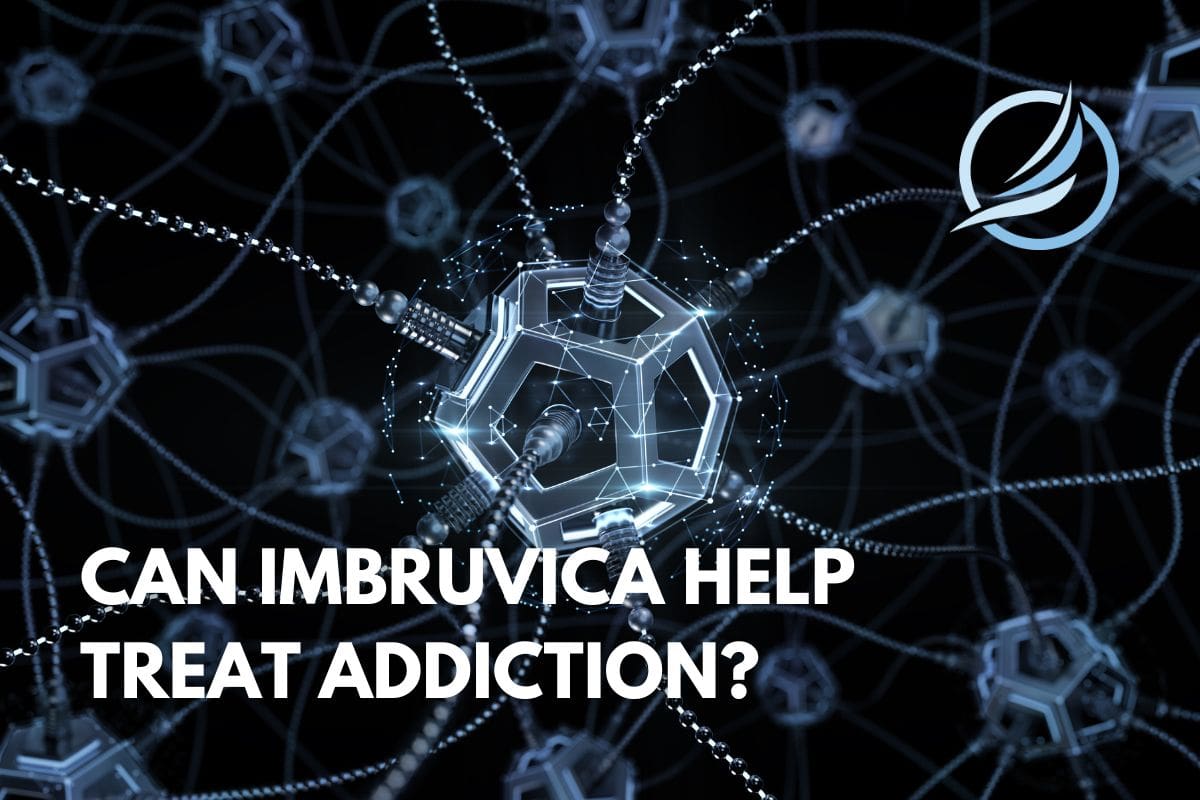The opioid crisis and rising cases of other substance abuse epidemics have led professionals to seek innovative approaches to addiction treatment—sometimes turning to drugs designed for entirely different conditions. One such drug, Imbruvica, known for its role in treating specific types of cancer, has sparked interest in its potential use in addiction treatment. Could a cancer medication hold the key to addressing substance use disorders?
What is Imbruvica?
Imbruvica, also known by its generic name ibrutinib, is an FDA-approved medication primarily used to treat certain types of cancer, including chronic lymphocytic leukemia (CLL) and mantle cell lymphoma (MCL). Its effectiveness in these conditions has made it a cornerstone in cancer therapy, especially for patients who have not responded well to other treatments.
Imbruvica targets a protein called Bruton’s tyrosine kinase (BTK). BTK plays a crucial role in the survival and growth of certain cancer cells. By inhibiting BTK, Imbruvica disrupts the signals these cancer cells need to survive, slowing or stopping their progression.
The Connection Between Imbruvica and Addiction Treatment
Recent studies and case reports suggest a possible connection between BTK inhibition—Imbruvica’s primary mechanism of action—and brain pathways involved in addiction.
BTK is active in cancer cells and is also present in other parts of the body, including the brain. Some researchers hypothesize that inhibiting BTK may influence neural circuits linked to addiction.
For instance, BTK inhibition might affect dopamine signaling pathways, which are central to the brain’s reward system and are often dysregulated in individuals with substance use disorders. By targeting these pathways, Imbruvica could potentially reduce cravings or alleviate withdrawal symptoms, although more research is needed to confirm these effects.
The potential benefits of using Imbruvica in addiction treatment are still speculative. However, the growing interest in whether it could modulate the brain’s reward system or reduce neuroinflammation in individuals with chronic substance use disorders suggests a promising avenue for future research.
Potential Risks and Considerations
While Imbruvica shows potential as a treatment for addiction, it is essential to consider the risks and side effects that accompany its use. Imbruvica is primarily prescribed for cancer treatment, and its side effects could pose challenges when applied to addiction treatment, especially for individuals already dealing with the health impacts of substance use.
Some known side effects of Imbruvica include:
- Fatigue
- Diarrhea
- Increased risk of bleeding
- Muscle spasms
- Heart-related issues (e.g., atrial fibrillation, shortness of breath)
These side effects may complicate treatment, particularly in patients with existing conditions caused by substance abuse, such as liver damage or weakened immune function.
Additionally, drug interactions may present challenges. For instance, Imbruvica’s impact on blood clotting could raise the risk of bleeding in individuals taking medications like methadone or buprenorphine. Heart-related side effects, such as atrial fibrillation, may also be problematic for those with preexisting heart conditions or undergoing detox.
These risks require close monitoring by healthcare professionals, especially during the detoxification phase, which already places stress on the body.
How Imbruvica Could Fit Into a Comprehensive Addiction Treatment Plan
If future research supports Imbruvica’s potential role in addiction treatment, it could become part of a more integrated approach to managing substance use disorders.
Addiction treatment often requires a combination of medications, behavioral therapies, and holistic care to address the physical, emotional, and psychological aspects of recovery. Imbruvica, if proven effective, could be incorporated into this comprehensive plan in several ways.
- Integrated Approach: Imbruvica could be integrated alongside behavioral therapies, counseling, and other medications like methadone or buprenorphine in addiction recovery.
- Targeted Use: Imbruvica might be particularly beneficial in specific cases where traditional addiction treatments have been less effective or in individuals with co-occurring medical conditions. For instance, someone with both a cancer diagnosis and a substance use disorder might benefit from the dual action of Imbruvica, addressing both conditions simultaneously.
- Personalized Medicine: Treatment plans tailored to an individual’s genetic profile and specific health needs are becoming the future of addiction care. Imbruvica could play a role in this approach by targeting the unique biological and neurological factors influencing a person’s addiction.
The Future of Imbruvica in Addiction Treatment
The future of Imbruvica in addiction treatment remains uncertain, but ongoing research could shed light on its potential benefits. As scientists continue to explore how drugs like Imbruvica might affect the brain’s reward pathways and addiction-related behaviors, the hope is that new treatments will emerge to complement existing options for substance use disorders.
The current body of research is largely speculative and without concrete evidence, so it’s too early to determine whether Imbruvica could be a routine part of addiction treatment plans. However, the initial interest in its effects on brain inflammation and cravings presents a promising avenue for future exploration.
If you or a loved one is struggling with addiction, don’t wait to seek help. At The Freedom Center, we offer a comprehensive range of addiction treatment options tailored to your unique needs. Our team is here to guide you on the path to recovery, offering the support and medical care you need to reclaim your life. Contact us today to learn more about our programs and how we can help you or your loved one start the journey to lasting sobriety.

































